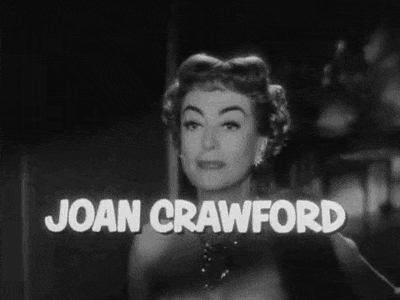The 1920s definitely deserve the title of "The Roaring '20s." It was the age of Prohibition, the rise of the real gangsters, jazz, the Harlem Renaissance and the beginning of women's liberation. Society seemed great; America was prospering after World War I, and society was becoming less and less conservative.
But America still had its problems with racism.
In fact, the 1920s saw the rise of many white supremacist groups; African-Americans were still subordinate to the white man and, therefore, many talented African-American singers were stopped from rising to success in a white-dominated industry. One of those talented singers was a female singer by the name of Josephine Baker.
Josephine Baker, born Freda Josephine McDonald in St. Louis, Missouri, on June 3, 1906. At the age of 8, she was sent to work for white women; she would take care of the children of upper class white families, and she would do housekeeping. At the age of 13, she ran away from home and lived in the streets of St. Louis in a time of complete racial discrimination. Baker began working as a waitress at a club to support her dance studies. Her dancing career began with her dancing in various clubs and street performing. By 1919, she was touring the U.S. with the Dixie Steppers and the Jones Family Band. She was becoming famous for her comedic and dancing skills. She ultimately moved to New York City and found success on Broadway. She performed in many musicals but was constantly facing the issue of racism. America was still very unwelcome of famous, recognized African-American celebrities. Therefore, she never became big in her first years of success and unfortunately never received the success she got in France in America.
In 1925, at the height of France's obsession with jazz, Baker traveled to Paris to perform in "La Revue Negre," which ultimately made the French absolutely fall more in love with jazz, and with Baker's dancing and singing styles. Even though the French were already somewhat introduced to jazz; Baker broke the ice and really brought the music to live, especially in Paris. Baker was seen as extremely exotic to the French eye. In France, Baker became the celebrity that she never became in the U.S. She became a complete hit, starring in French films like "Zou-Zou" and "Princesse Tam-Tam," which were huge hits in French 1920's cinema.
Her most famous picture comes from the performance called "La Folie du Jour," where she wore a skirt made of 16 bananas. The photograph made her a hot celebrity in 1920s France. The warm welcome she received from the French and the success she got in France led her to become fluent in French and acquire French citizenship via her husband. Baker felt that France was more of her country than the U.S. ever was since the United States never showed her appreciation like France did.
Baker did return to the U.S. in 1936 to perform with the Ziegfield Follies, feeling confident from all the popularity she held in France, but she was met with hostility and racism, so quickly returned to France, disappointed. However, Baker returned to the U.S. during the 1950s to lend her support to the Civil Rights Movement, taking part in demonstrations and boycotting segregated clubs and venues where they would not allow her to perform due to the color of her skin. Baker participated with Martin Luther King Jr. in his march to Washington in 1963, being one of the most prominent speakers that day. The NAACP declared May 20, 1951 as Josephine Baker Day.
Baker would not perform again until 1975 at the Bobino Theater in Paris, being the 50th anniversary since her first performance in Paris in 1925. Many celebrities were present that evening, including Princess Grace of Monaco. A few days later, Baker suffered a cerebral hemorrhage and passed away. She was only 69. She was a great loss to the music world and the francophone world.
Baker truly inspires me in many ways possible with her courage to stand up against the racism she experienced in early to mid-20th century America. She did not let it stop her from achieving fame and reaching for her dreams.
Josephine, you are an inspiration and simply amazing!
Je Vous Aime!
http://www.cmgww.com/stars/baker/about/biography.h...





















